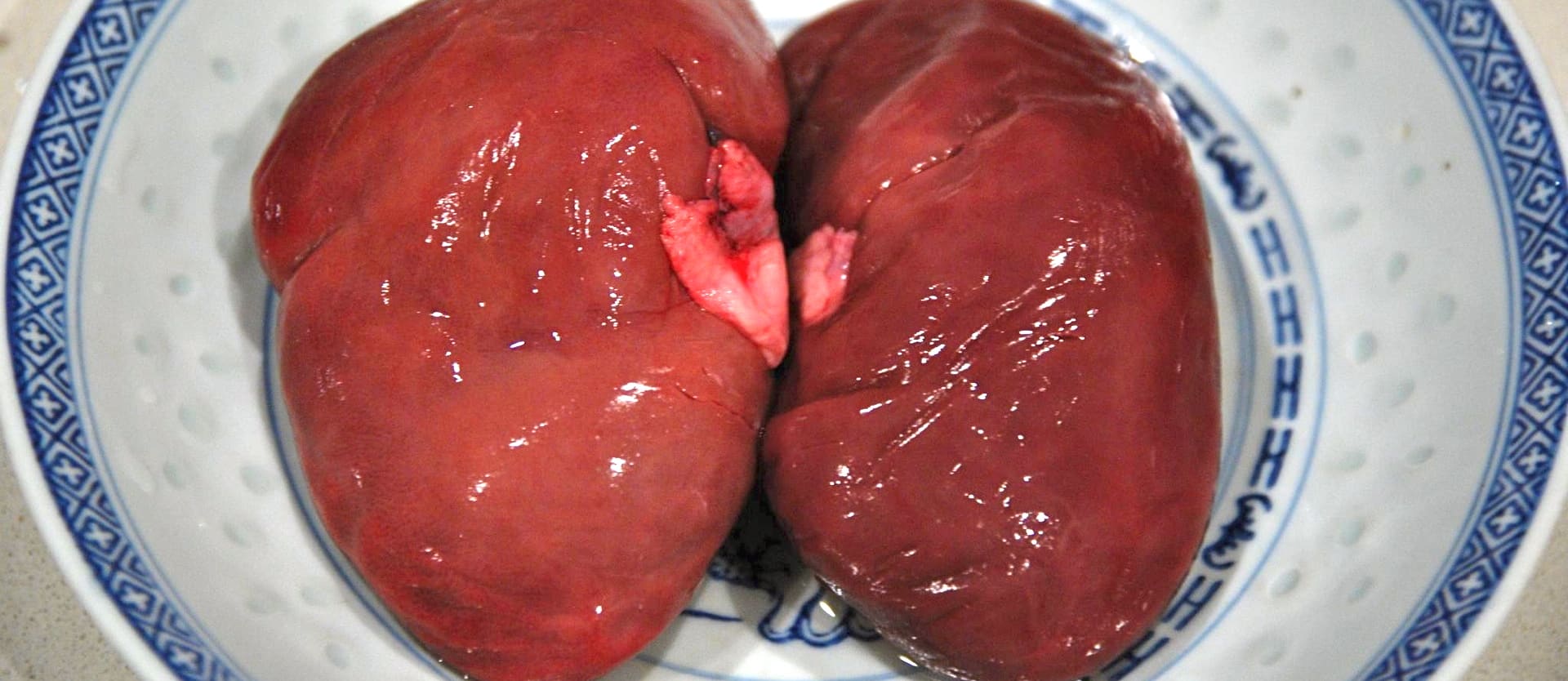Our kidneys are highly vascular organs. That’s why when you see kidneys in the meat case they look so red. After all, our two little kidneys have to filter through our entire blood supply and as such receive about 20% of our cardiac output every time our heart beats. So if the standard American diet can be so toxic to the blood vessels in our heart, back, abdomen, and pelvis, contributing to heart attacks (Heart Attacks and Cholesterol: Purely a Question of Diet), spinal disc degeneration (Cholesterol and Lower Back Pain), aneurisms (Abdominal Aortic Aneurysms: Ticking Time Balloons), and sexual dysfunction (Cholesterol and Female Sexual Dysfunction), what might it be doing to our kidneys?
In my 2-min. video, Preventing Kidney Failure Through Diet, I profile a recent Harvard study putting that question to the test. Thousands of women, their diets, and their kidney function were followed for a decade. The researchers found three significant risk factors for declining kidney function in these women; none of which come as a surprise given that we’re talking about clogged and inflamed blood vessels: animal protein, animal fat, and cholesterol. All three of these risk factors are only found in animal-based foods. No such association was found for plant protein or plant fat.
Failing kidneys can be a canary in a coal mine, informing us about the health of our blood vessels. Quoting from the Harvard study, “modest decrements in kidney function are powerfully associated with subsequent overt kidney disease, cardiovascular risk, and all-cause mortality,” meaning a shortened lifespan. “In summary, diets lower in animal protein, animal fat, and cholesterol may be protective” against this kind of kidney damage.
What if the damage has already been done, and you’re already suffering from chronic renal failure? That’s the subject of my video Treating Kidney Failure Through Diet.
One of the important functions of our kidneys is to filter out excess phosphorus from our bloodstream, and so when our kidney function declines, phosphorus can build up in our bodies and cause something called metastatic calcification, where your heart valves and muscles and other parts of your body can buildup calcium deposits and eventually result in skin necrosis, gangrene, and amputations.
So, if a person has diminished kidney function their doctor will likely put them on a low phosphate diet, which is tough, because basically everything with protein has phosphorus. So both plant foods and animal foods have phosphorus. But vegans have been shown to have significantly better kidney function, on average, compared to omnivores. So while researchers concluded that “These results can confirm the usefulness of vegetarianism here and support the use of a vegan diet for the patients with kidney failure,” maybe it was just because the omnivores were getting a higher protein load. We know that lower protein diets appear to delay the progression of kidney failure, so did the plant based diet help because they were eating less protein or because the body somehow is able to handle plant protein better than animal protein?
To do that you’d have to split people into two groups, half on a vegetarian diet, half not, with the critical caveat to make sure both groups eat the exact same amount of protein and the exact same amount of phosphorus. And that’s exactly what researchers did. Published recently in the journal of the American Society of Nephrology, they took vegetarians and put them on a meat diet, and then took meat-eaters and put them on a vegetarian diet. Even though phosphorus and protein intake were kept the same in both diet groups, in the video you can see an illustration of the level of phosphorus stuck in the bloodstream of those on the meat diet, compared to those on the veg diet. Something about plant foods appears to enable our bodies to better handle their phosphorus content. Plant phosphorus appears easier to cleanse away.
Positive results have been seen with even semi-vegetarian diets, but the reason the new study “observed more dramatic differences after only 1 week, was perhaps because of the pure vegetarian diets used in our study. Taken together, vegetarian-based diets may be beneficial for the control of phosphorus balance in patients with chronic kidney disease.”
This is another reason why Plant Protein is Preferable. Food is, after all, a package deal. In addition to kidney failure, plant based diets can prevent and treat COPD, treat cancer, and prevent and treat heart disease. Why, then, don’t more providers in the medical community embrace plant-based diets? Part of the reason may be The Tomato Effect.
-Michael Greger, M.D.
